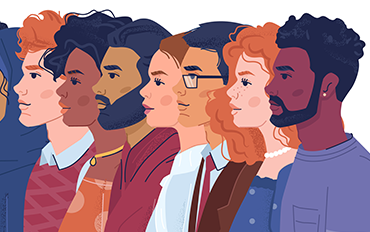In the modern age, there is indeed a focus on mental wellness. Individuals seek guidance and support to navigate the complexities of their lives. Amidst the myriad options available, from psychotherapy to coaching, it’s imperative to discern the nuances between these practices, particularly concerning regulatory oversight and the protection of clients’ well-being.
Psychotherapy, a profession deeply rooted in ethical standards and state regulatory oversight, stands as a beacon of trust and assurance for those embarking on their journey towards healing and self-discovery. Defined as a collaborative process between therapist and client, psychotherapy offers a structured and evidence-based approach to addressing mental health concerns and facilitating personal growth. Importantly, psychotherapy is a protected profession, regulated by state and national boards with stringent guidelines and standards aimed at safeguarding the public interest.
Without the regulatory framework and ethical guidelines that govern psychotherapy, coaching poses inherent risks to individuals seeking support.
Conversely, coaching operates within a different paradigm. While coaching can be a valuable tool for personal and professional development, it lacks the regulatory oversight and safeguards inherent in the psychotherapy professions. Coaches, by definition, engage in a thought-provoking and creative process aimed at maximizing the potential of their clients. However, without the regulatory framework and ethical guidelines that govern psychotherapy, coaching poses inherent risks to individuals seeking support.
One of the primary distinctions between psychotherapy and coaching lies in the protection afforded to clients. In the realm of psychotherapy, clients benefit from state-mandated regulations and professional codes of conduct designed to ensure ethical practice and accountability. Psychotherapy clients can trust that their well-being is prioritized, with avenues for recourse in the event of misconduct or malpractice.
In contrast, coaching operates in a regulatory gray area, with no standardized oversight or professional codes governing practice. This lack of regulation exposes coaching clients to potential harm, as there are no safeguards in place to protect against unscrupulous practices or misconduct.

The divergent paths of psychotherapy and coaching are starkly evident in their educational standards. Psychotherapists undergo rigorous academic training, typically culminating in a master’s or doctoral degree, pass a national exam, 1 to 2 years of apprenticeship under a regulated psychotherapy supervisor, and must meet state-mandated licensure requirements. This education encompasses a comprehensive understanding of human behavior, psychopathology, therapeutic techniques, and ethical considerations, ensuring that psychotherapy are equipped with the knowledge and skills necessary to provide competent and effective care to their clients.
 In contrast, there are no standardized educational requirements for coaches, leaving individuals free to offer their services without any formal training or oversight. This lack of educational standards in coaching raises significant concerns about the quality and safety of services provided, underscoring the importance of recognizing the value of professional counseling in promoting the well-being of individuals and communities.
In contrast, there are no standardized educational requirements for coaches, leaving individuals free to offer their services without any formal training or oversight. This lack of educational standards in coaching raises significant concerns about the quality and safety of services provided, underscoring the importance of recognizing the value of professional counseling in promoting the well-being of individuals and communities.
Psychotherapists are trained to assess and diagnose mental health disorders, allowing them to provide comprehensive treatment for a wide range of issues, from depression and anxiety to trauma and addiction. They possess the expertise to conduct thorough evaluations, develop personalized treatment plans, and implement evidence-based interventions tailored to each client’s unique needs. Moreover, psychotherapists are adept at recognizing when clients may require additional support beyond psychotherapy, such as psychiatric care or hospitalization, and can facilitate appropriate referrals to ensure holistic care.
In contrast, coaches may lack the specialized training and clinical knowledge necessary to address complex mental health concerns effectively. Without the ability to diagnose and treat mental health disorders, coaches may inadvertently overlook underlying issues or provide interventions that are not evidence-based, potentially compromising the well-being of their clients.

Psychotherapists are committed to lifelong learning and professional growth, engaging in ongoing education and supervision to enhance their skills and stay abreast of advancements in the field. Through continuing education courses, workshops, and conferences, psychotherapists deepen their understanding of emerging therapeutic modalities, research findings, and cultural competencies. Additionally, psychotherapists participate in regular supervision with experienced clinicians, where they receive guidance, feedback, and support in navigating complex clinical cases and ethical dilemmas. This dedication to continuing education and supervision ensures that psychotherapists maintain high standards of practice and provide quality care to their clients.
In contrast, coaches may not be subject to similar requirements for continuing education or supervision, potentially limiting their ability to stay current with best practices and receive guidance from experienced professionals. As a result, clients may be at risk of receiving outdated or ineffective coaching interventions, highlighting the importance of recognizing the value of ongoing education and supervision in mental health practice.
 Psychotherapists undergo extensive training in multicultural competence, equipping them with the necessary skills to work effectively with clients from diverse cultural backgrounds and identities. This training encompasses an understanding of cultural nuances, historical context, and systemic factors that shape clients’ experiences and worldviews. Psychotherapists are adept at navigating cultural differences, addressing issues of privilege and oppression, and fostering a safe and inclusive therapeutic environment for all clients. Furthermore, psychotherapists continuously strive to expand their cultural humility through self-reflection, ongoing education, and consultation with colleagues from diverse backgrounds.
Psychotherapists undergo extensive training in multicultural competence, equipping them with the necessary skills to work effectively with clients from diverse cultural backgrounds and identities. This training encompasses an understanding of cultural nuances, historical context, and systemic factors that shape clients’ experiences and worldviews. Psychotherapists are adept at navigating cultural differences, addressing issues of privilege and oppression, and fostering a safe and inclusive therapeutic environment for all clients. Furthermore, psychotherapists continuously strive to expand their cultural humility through self-reflection, ongoing education, and consultation with colleagues from diverse backgrounds.
In contrast, coaches may not receive formal training in multicultural competence, potentially leading to cultural insensitivity or misunderstanding in their interactions with clients from marginalized communities. Without the necessary cultural awareness and humility, coaches may inadvertently perpetuate harm or reinforce existing disparities in mental health care, underscoring the importance of prioritizing multicultural competence in mental health practice.
Psychotherapy, with its established framework of regulation and accountability, offers a trusted pathway towards healing and growth, ensuring that clients receive the support and protection they deserve.
Furthermore, the process of seeking recourse in the event of grievances differs significantly between psychotherapy and coaching. Psychotherapy clients have the assurance of state boards and regulatory bodies, which provide avenues for complaints to be heard and addressed without additional cost or legal hurdles. In contrast, coaching clients who wish to address grievances must navigate the court system, a process fraught with complexities and costs that may deter individuals from seeking justice.
As advocates for mental wellness and ethical practice, it is incumbent upon us to recognize the importance of regulatory oversight and ethical standards in safeguarding the well-being of those we serve. Psychotherapy, with its established framework of regulation and accountability, offers a trusted pathway towards healing and growth, ensuring that clients receive the support and protection they deserve.
In conclusion, psychotherapy emerges as the gold standard in mental health support, distinguished by: (i) rigorous education and training, (ii) regulatory oversight and ethical guidelines; (iii) evidence-based practice; (iv) scope of practice; (v) continuing education and supervision; and (vi) integration of multicultural competence. As the public seeks mental health support, it is imperative to uphold the principles of ethical practice and accountability inherent in the psychotherapy professions, ensuring that individuals receive the care and protection they need to thrive safely and holistically.

Ezra Lockhart, PhD, MHlthSc(DD), LMHC, LAC, MFTC, MAC, CAS, CDCS, is an AAMFT Professional member holding the Clinical Fellow and Approved Supervisor designations. For over a decade (2004-2016), Lockhart maintained client practice and consultantships with multiple home healthcare agencies in the state of Alaska. Additionally, he studied with the Faculty of Health Sciences and Centre for Disability Research and Policy at University of Sydney in Australia completing a master’s degree in Developmental Disability. Lockhart is a board certified Chemical Dependency Counselor at the state and national levels. www.easydoesitcounseling.com
Other articles
Micro Feminism: Small Acts of Feminism Can Confront Big Biases in Academia
Social media is flooded with videos of people—men, women, and those who are gender-fluid—explaining how they use micro feminism to challenge gender inequality in their personal lives. While you might not be familiar with the term “micro feminism,” chances are, you’ve observed or participated in the undoing of gender biases more often than you realize.
Danna Abraham, PhD
Expanding the Frame
This past spring, we had the pleasure of presenting together at the 2024 AAMFT Leadership Symposium in Phoenix. The title of our presentation was “Expanding the Frame: Leading the Charge on Relational, Multigenerational, and Systemic Awareness Among Mental Health Professionals.” We are both program directors of small, relatively nascent MFT programs in the Bronx, located roughly six miles apart.
Michelle A. Bell, PsyD & Sharon Marianetti-Leeper, PhD
An Invitation to Explore Ecotherapy
In the early months of the COVID-19 pandemic, with fear and the unknown weighing heavily, I wrote an article about taking therapy outdoors as “A Natural Approach to Current Mental Health Challenges” (Family Therapy magazine, July/August 2020). Therapy, which pre-pandemic was almost exclusively provided face to face in offices around the world, was catapulted onto the online platform and clients found themselves seeing their therapists in closets, bathrooms, bedrooms, cars; anywhere they could find some privacy and an internet connection.
Lauren Kahn, MSW



